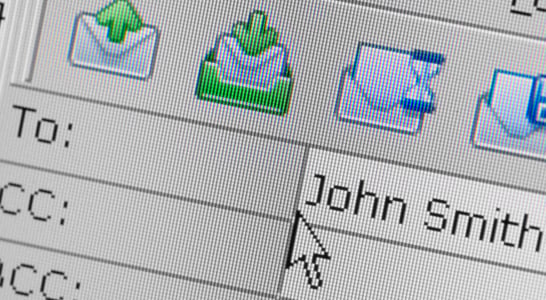
National Internet Day
In a world where a click connects, a treasure trove of information, cat videos, and endless memes awaits, turning boredom into fascination.
The Internet is everywhere these days, being accessed on phones and tablets, tied into our cameras and our TV’s. Wi-Fi is accessible from everywhere these days, from city buses to your neighborhood McDonald’s, and the world grows smaller every day as a result.
National Internet Day is a celebration of this culmination of computing and communication technology, and they way it has brought all our lives together.
The first letters ever transmitted across the prodigal internet, which consisted of two computers, were “L” and “O”.
This was as far as they got before the ‘Net crashed, and they had to reboot to get things in running order. We’ve been resetting our routers ever since, just to keep our beloved lifeline running ever since.
How to Celebrate National Internet Day
Why don’t you start your celebration of National Internet Day by visiting the original website, which just so happens to still be online!
Take a moment to gander at its high-quality graphics, it’s utterly sleek and streamlined design, and the sheer high-tech embodied by the first website ever. Absolutely stunning? No?
Realize that at its time, this was the internet, this was how things were designed and put together. So low was the rate at which data could be transferred that images were to be a dream of a distant future, one that would come along swiftly, and with advances and innovations that couldn’t be imagined at that point.
Then go and do your favorite things, visit with your friends, read up on your favorite forums, and generally take some time to appreciate how far the internet has come in the days that followed.
National Internet Day is a reminder to all of us that this amazing invention started out with two letters “L” and “O”, before we ever were able to login to trillions of website’s put up by billions of users.
History of National Internet Day
National Internet Day celebrates the origin of the very first internet transmission ever sent, and from it the utterly world-changing series of events that followed.
People are able to video conference from around the world, and the information is stored and transmitted at unbelievable rates between computers and friends and family.
Enhanced Reality is becoming a reality, with Digital Overlays available for real world things, seamlessly combining the world of the internet with the one we walk around in every day.
Hard to believe that the first internet transmission was sent just months after Neil Armstrong walked on the moon.
The internet is already slightly extra-terrestrial, with video and communication available to the astronauts and space stations circling in low-earth orbit.
National Internet Day FAQs
What exactly was the first message sent over ARPANET, and why did it only send “LO” instead of “LOGIN”?
The first message over ARPANET was meant to be “LOGIN”. A student, Charley Kline at UCLA, typed “L”, then “O”.
But when he tried to type “G”, the system crashed. Thus, the first message ever was truncated: just “LO.
This glitch makes the first message both a technical failure and a poetic seed: “Lo!” (“look”, “listen”, or old‐style “lo and behold”) was all the world got.
Who were some of the unsung pioneers besides Charley Kline who made that first ARPANET transmission possible?
Leonard Kleinrock is often credited because he and his lab built much of the infrastructure and theory for packet switching.
But the first node also involved Bill Duvall at the Stanford Research Institute, who was on the receiving end.
Also, the Interface Message Processor (IMP) hardware team, network engineers, and others behind the ARPANET nodes were crucial but seldom named.
Their work enabled the routing, switching, and protocols that allowed “LO” to even travel.
Why is National Internet Day on October 29, when there are other “Internet Days” on different dates?
October 29 marks the date in 1969 when ARPANET’s first two‑computer message was attempted (the “LO”).
That’s the U.S./global version of Internet Day.
However, in Spain and many Latin American countries, “Internet Day” is observed on May 17, aligning with World Information Society / Telecommunication events and ITU observances.
Is there a myth that Al Gore said he invented the Internet? What’s the truth behind it?
Yes — there’s a persistent misconception that former U.S. Vice President Al Gore claimed he “invented” the internet.
In truth, what he actually said in interviews (and which has often been misquoted or misinterpreted) was that he “took the initiative” in creating the Internet.
He supported legislation and funding for its development and expansion.
What quirky or unusual celebrations do people do for Internet Day around the world?
Some tech museums hold live reenactments of the ARPANET message—typing “L”, “O”, then a mock “crash”. Others organise “retro‐web parties”, exploring the oldest websites on the Wayback Machine. (These are small but growing.)
In classrooms in Spain on May 17, people do “internet free hour” experiments: turning off wifi/mobile data and reflecting on what life would be like without the net.
What are some misconceptions about what the Internet Day is celebrating vs. what it’s not?
One misconception is that the day celebrates the World Wide Web (WWW) rather than wider internet technologies.
In fact, WWW came later (1989‑90); ARPANET predates it, and many facets (packet switching, early networks) are as important.
Also, some people sometimes think Internet Day is a UN‑mandated holiday.
It isn’t globally mandated; rather, it’s an informal observance adopted in various regions and by different tech/cultural groups.
How did early failures during that first ARPANET test influence internet design or culture?
The crash after typing “LO” illustrated how fragile early networked communication was.
Error handling, robustness, and redundancy became core design goals. For example, protocols were built to expect failure and reconnect.
What privacy or security issues did the pioneers foresee but couldn’t implement, and how do these relate to Internet Day?
As early as the 1970s, Vint Cerf and Bob Kahn proposed embedding encryption into protocols.
But during the Cold War and defense oversight, many security features were delayed or restricted. Internet governance had to balance openness vs. surveillance, encryption vs. regulation.
Today, celebrating Internet Day prompts reflection on how far security has come (TLS, HTTPS, VPNs), and how many challenges persist (data privacy, ethical use of AI).
The seeds of these debates trace back to the ARPANET era.
In what unexpected places has Internet Day been used as a platform for activism or awareness campaigns?
Some digital rights groups align activities on Internet Day with campaigns for net neutrality, open source, freedom of speech, and access.
For example, websites might “slow down” or simulate restricted access to show what losing net neutrality might look like. (Similar to Internet Slowdown Day, although that’s a distinct observance.)
How did the usage and meaning of “Internet Day” evolve with new technologies like mobile internet, social media, and AI?
Originally, Internet Day looked backward: marking ARPANET, early networks, and the architecture.
As time passed, people shifted toward present issues: how mobile access has expanded, how social media shapes communication, privacy concerns, and AI ethics.
For example, some recent observances include debates, panels, and blogs about AI accountability, digital inclusion (ensuring people in remote or disadvantaged areas have access), and the environmental footprint of data centers.
These newer themes broaden the meaning of the day beyond just tech history.
Also on ...
View all holidaysNational Cat Day
Furry, playful and independent, these lovable pets never fail to entertain. They can be your nap buddy, playmate, or cuddle partner.
RSPB Feed the Birds Day
Inviting feathered friends with small outdoor dining spaces, fostering wildlife connections, and adding nature's charm to your surroundings.
We think you may also like...
Electronic Greetings Day
Sending digital greetings feels like sharing a piece of your heart through the internet, spreading joy, love, or a good laugh with just a click.
Data Privacy Day
In an increasingly interconnected world, safeguarding our digital footprint becomes paramount. Cherishing personal information ensures trust, security, and peace of mind for all.
Education Technology Day
Make use of education technology by enrolling in an online class, playing an educational game, and learning more about the technology that helps the world learn.







